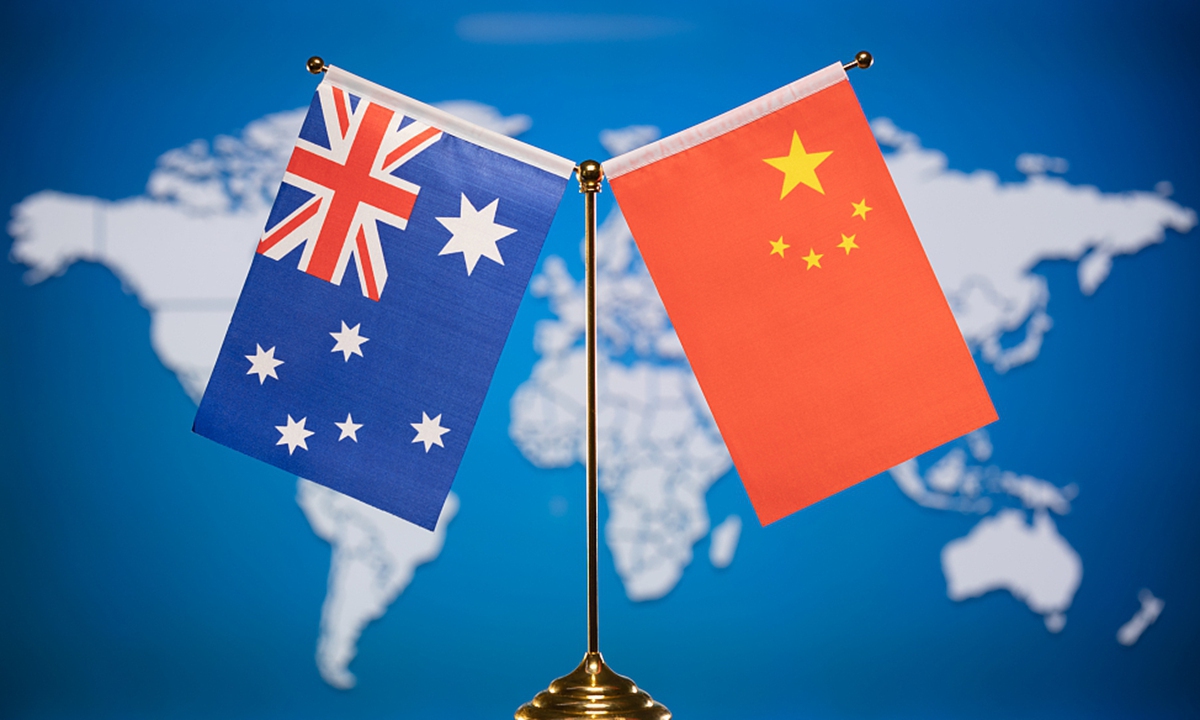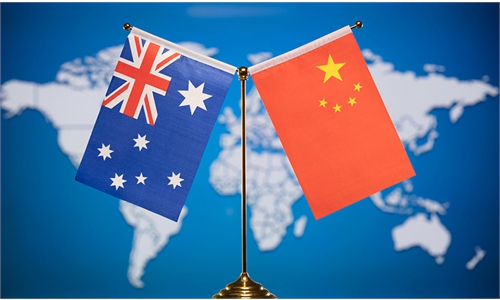China-Australia relations expected to sustain stabilization and warm up: Global Times editorial

Photo: VCG
At the invitation of Deputy Prime Minister and Minister of Foreign Affairs of New Zealand Winston Peters and Minister for Foreign Affairs of Australia Penny Wong, member of the Political Bureau of the Communist Party of China Central Committee and Foreign Minister Wang Yi will pay an official visit to New Zealand and Australia from March 17 to 21. During his visit to Australia, Wang Yi will hold the seventh China-Australia Foreign and Strategic Dialogue with Penny Wong. This is a visit of great significance for China-New Zealand and especially China-Australia relations.
Soon after the conclusion of the two sessions, Foreign Minister Wang Yi's visit to Australia demonstrates China's willingness to continue to push bilateral relations to new heights and marks an important beginning for the future of China-Australia relations. This year marks the 10th anniversary of the establishment of the China-Australia comprehensive strategic partnership, a key milestone for building on past achievements and looking to the future, ensuring the stability and long-term development of China-Australia relations.
Since the Albanese government took office in 2022, it has adjusted the irrational policies of the previous two governments toward China, which has received positive response from the Chinese side. The China-Australia relationship is gradually bottoming out and rebounding, stabilizing and warming up. Wang Yi's visit is a milestone in this process. The detours Australia has taken in its relations with China show that the two countries can damage their relationship in a short period of time, but correcting erroneous policies, eliminating negative impacts, and promoting the recovery of bilateral relations is a slow process. This requires Canberra to learn from its mistakes and take more concrete actions. Frankly speaking, Australia still has a lot of work to do in correcting its approach to the China policy, such as stopping the obstruction or even sabotage of Chinese companies' mergers, investments, and other legitimate economic activities on the grounds of "national security."
In the perception of the outside world, one of the most noticeable changes is the improvement in the atmosphere between China and Australia. Some have described the current China-Australia relationship as breaking the "solid ice" of previous years, moving toward the direction of "the warm waters of rivers in spring." Former Australian prime ministers Malcolm Turnbull and Scott Morrison both had a penchant for making overly aggressive remarks and actions against China. They were eager to take a stand even on matters completely unrelated to Australia, maliciously attacking, criticizing, and smearing China. Since taking office, the Albanese government's statements regarding issues of significant and especially core interests concerning China are generally cautious. The improvement in atmosphere will serve as a precursor and prerequisite for the actual improvement of bilateral relations between the two countries, which is significant and not superficial.
Behind the turning point in political mutual trust between China and Australia is the mutual recognition that the China-Australia relationship should conform to, or return to, the positioning of a comprehensive strategic partnership between the two countries. Especially from the Australian side, there has been a gradual return to the correct understanding of China. Correspondingly, diplomatic relations, economic and trade relations, and cultural exchanges are all being repaired, with specific issues in some economic and trade areas gradually being resolved, giving Australia a more tangible sense of improvement in the relationship. For Wang Yi's visit this time, Australian public opinion is closely focused on the issue of Chinese tariffs on Australian wine. We believe the problems can be properly resolved if everyone is approaching negotiations with an attitude of rationality and pragmatism.
China has always been Australia's largest trading partner, with the bilateral trade volume accounting for nearly one-third of Australia's total foreign trade. As two major economies with high complementarity, both sides benefit from trade and investment with each other. There isn't any reason for Australia to become a sacrificial pawn under unconfirmed "decoupling" or "new cold war" scenarios driven by certain hegemonic ideologies. Much of Australia's security anxiety, especially concerning China, is unnecessary. It might be challenging for Canberra to completely shift away from this mind-set in the short term. Although China and Australia still have differences on some issues, these are not insurmountable obstacles. Wang Yi's visit is bound to inject new momentum into the China-Australia relationship.


